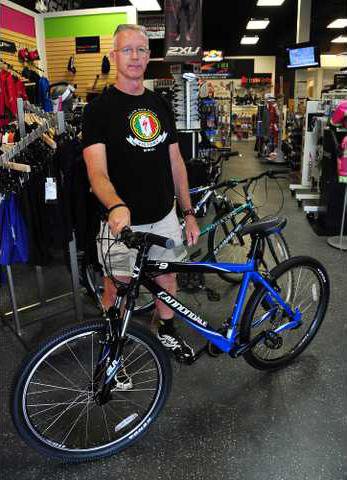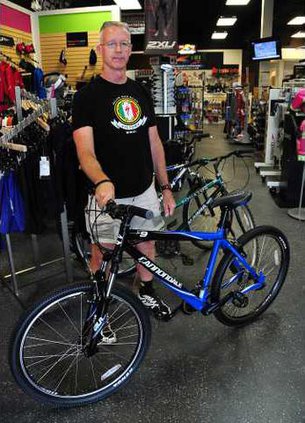Mountain bike collections
Benefitting Bicycles for Humanity-Georgia
When: 9 a.m. to 5 p.m. Saturday
Where: Fit 2 Tri, 1292 Thompson Bridge Road, Gainesville
Contact: 770-532-2453, or visit www.b4hgeorgia.org
Shiny wheels, bright tassels, a basket or a bell.
In the United States, a bicycle's arrival can make or break a child's holiday wish list.
However, in some foreign communities, a bicycle is much more than a gift. It can be a push toward an impoverished family improving their future. It can mean the difference in going to school and going hungry.
"Bikes are something that we typically take for granted," said Kelly Parham, manager of Fit 2 Tri in Gainesville.
"We use them for a hobby, but in some countries, they can be a family's only means for transportation besides walking."
In an effort to help individuals in poor areas of sub-Saharan Africa get from point A to B, Fit 2 Tri has agreed to be a collection site for the Georgia chapter of Bicycles for Humanity.
The Alpharetta-based nonprofit seeks to "empower individuals to improve their quality of life by transferring mobility through the use of bicycles." The organization was founded in 2009.
The donated bicycles not only provide much needed transportation, they will provide new employment opportunities for the local villagers who are trained as bicycle
mechanics.
The bikes will also be used by missionaries and health care workers who often have to carry supplies for miles on foot to reach their patients infected with malaria or HIV. And traversing 30 miles of African terrain can be a lot less tiresome on two wheels instead of two feet.
In places where school buses are nearly unheard of, riding to class on a bicycle would be first rate, which is why some of the bikes will also be used to help children get to and from school.
According to Parham, customers have been donating bikes at the shop for the last few weeks, but the big collection day is Saturday.
"We'll have a tent set up all day. Someone from Bikes for Humanity will be there, and they'll have tax donation forms," Parham said.
"I hope that we can collect 40 or 50 bikes."
If potential donors can't make it to the store on Saturday, they can drop off their donation during regular business hours all week.
Since the terrain in Namibia can be rugged, organizers are only accepting mountain bikes. They can be new or used.
"They don't even have to be in working condition. A part of what Bikes for Humanity does is to teach the people who receive them how to repair and maintain their bikes," Parham said.
"We are also collecting parts and anything else that has to do with mountain bikes."
Saturday will be the last collection day for the bicycle group, before the donations are shipped to Africa on a 40-foot shipping container.
Transport costs the organization about $10,000.
The goal of the organization is to collect 300 to 400 bicycles.
According to organization officials, they were about halfway to their goal at the beginning of the month.
Whether it's an old chain, gear shift or even a well-loved seat, drop it by the shop Saturday.
"This is a neat way for us to get involved and help others who don't have the luxuries that we do," Parham said.
"We'd like to see this become an annual event."

